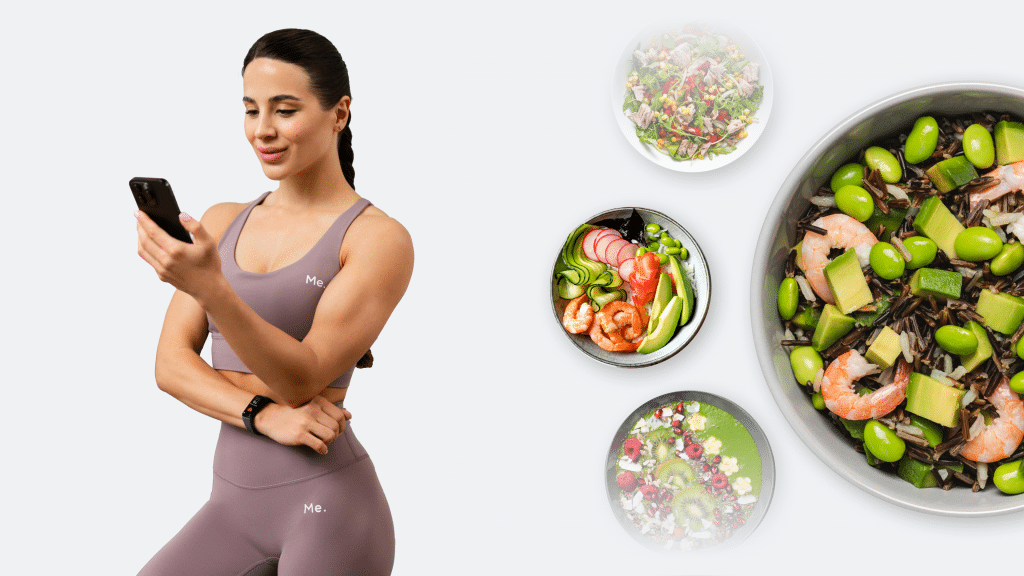Also called Indian saffron or the golden spice, turmeric has demonstrated beneficial health qualities. This plant grows in Central America and India and its root is bright yellow-orange.
Many cultures have used processed turmeric throughout the years for flavor and anti-inflammatory properties and also as a dye.
People in modern times can digest turmeric in various forms: capsules, powders, teas, and extras. In addition, you can prepare delectable dishes with this spice and load your body with important nutrients.
This article is dedicated to the astonishing 11 benefits of turmeric on health, its probable side effects, and various ways to incorporate this plant into your diet.
The 11 Benefits of Turmeric
Here are the top 11 potential health benefits of turmeric:
- Anti-inflammatory properties
- Pain relief and management
- Better gut health
- Cardiovascular protection
- Protection against respiratory viruses
- Better mental well-being
- Improved skin health
- May help with sexual health and function
- Better aging
- Reduced risk of malignant tumors
- Weight Loss
What Are the Health Benefits of Turmeric?
Unless you’ve looked into the benefits of taking turmeric before, you probably simply add it to food and drinks simply for the color or for its distinct earthy and peppery taste. However, to truly appreciate how good this spice is, we must learn a bit more about its benefits.
The Incredible 11 Benefits of Turmeric for Women and Men
Here are some science-backed health benefits of this spice:
- Anti-Inflammatory Properties
This spice contains a compound known as curcumin that gives turmeric its bright yellow color. Research on this compound suggests that it has both oxidative and anti-inflammatory properties. If you work out, adding this spice to your diet could also help with the recovery of your muscles, in addition to enhanced performance (1).
- Pain Relief and Management
If you often suffer from pain due to osteoarthritis, supplementing your diet with this spice may offer some relief. Studies over the years have suggested that the use of turmeric or curcumin extract can be an alternative for osteoarthritis pain relief, particularly for knee pain (2, 3).
- Better Gut Health
If you’re constantly dealing with digestive and other gut issues that cause you pain and decrease your quality of life, adding this spice to your food or drinking it as a tea could offer some relief.
Multiple studies have suggested that turmeric extract or curcumin may have beneficial effects for the treatment and management of several digestive issues (4, 5, 6, 7). However, turmeric alone isn’t the answer to these problems. Researchers have suggested its use as a therapeutic option to be used alongside prescribed medication, particularly in cases of more severe gut illnesses. Always talk to your healthcare provider before adding any supplements.
BetterMe: Health Coaching app helps you achieve your body goals with ease and efficiency by helping to choose proper meal plans and effective workouts. Start using our app and you will see good results in a short time.
- Cardiovascular Protector
According to the World Health Organisation, diseases that affect the heart and blood vessels continue to be the leading cause of death in the world, with around 17.9 million lives lost to these illnesses each year (8).
Thankfully, consuming turmeric can be a positive step to help you keep yourself and your loved ones from being just another number on this statistic. Studies have shown that this spice has antioxidant and anti-inflammatory properties that may help reduce oxidative stress, inflammation, and other markers that increase the risk of this disease (9, 10, 11).
- May Protect Against Common Viruses
Traditionally, this spice was used to help treat and manage respiratory conditions, and for good reason. Studies have suggested that this spice may be beneficial for the prevention, treatment, and management of multiple respiratory conditions ranging from simple allergies to more acute and chronic conditions (12, 13, 14).
- May Help with Your Mental Well-Being
The last few years have been and continue to be hard on many and it’s no surprise that a lot of people are dealing with distressing and worrisome thoughts. If you’re feeling stressed or worried, adding turmeric to your diet may help with this issue.
This spice was used for centuries as an Ayurvedic medicine for mental well-being and research has suggested that turmeric’s main active component, curcumin, may be used as an adjunct therapy option in the management and treatment of these conditions (15, 16).
Remember that turmeric alone won’t heal mental health conditions. Always speak to a doctor about mental health problems and take any prescribed medication they give to you, even while taking turmeric in your food/teas.
- Can Boost and Protect Your Skin Health
In the last decade, the world has started to understand the importance of taking care of skin health and people haven’t stopped trying to learn all they can to preserve the health of their skin – not just on the face but the rest of the body too.
While topical treatments are good, good skin health comes from within and this is where the benefits of turmeric on skin shine. Early research suggested that when consumed orally or applied topically, curcumin may have benefits for skin health (17, 18, 19).
Check out this article to learn how turmeric and cinnamon may improve your health.
- May Help with Sexual Health and Function
If you’ve ever wondered if there are any sexual turmeric benefits, the answer is maybe.
In terms of the possible benefits of turmeric for women, a study done on stressed female mice found that when these subjects were fed 100 mg/kg turmeric extract daily for 4 weeks, their sexual hormones increased and their sexual function also improved (20).
As for the potential benefits of turmeric for men, the spice may also improve their sexual function. A 14-day study of lab rats found that when hypertensive rats were treated with a 4% supplementation of turmeric or ginger, their sperm motility and testosterone levels improved, which helped mediate their reproductive function (21).
However, these studies were done on animals with very high doses of turmeric extracts, so the findings aren’t directly applicable to humans.
- May Help with the Aging Process
Aging is a natural process that comes with some unwanted side effects such as age-related diseases. Luckily, research has suggested that curcumin in turmeric has powerful anti-inflammatory effects and it’s a very strong antioxidant that may help mitigate some of this.
They suggest that this compound may be beneficial for cognitive function, muscle strength, and delaying age-related diseases, all factors that can enhance the quality of life of aging individuals (22, 23, 24).
- May Help Fight Against Malignant Tumors
Studies have suggested that curcumin may help fight against and possibly even kill malignant tumor cells, which could help with the protection against and treatment of illnesses caused by these malignant tumors (25, 26).
- May Help with Weight Loss
Multiple studies have suggested that supplementing your diet with turmeric may help you shed some weight. The studies show that increased curcumin intake may contribute to a significant reduction in BMI, weight, and waist circumference (27, 28, 29). However, turmeric alone is unlikely to lead to weight loss without other dietary and lifestyle changes.
Read more: Matcha Green Tea With Turmeric Facts, Health Benefits And Side Effects
What Are the Negative Effects of Turmeric?
Turmeric and curcumin are generally safe and can be consumed by many people without any side effects. However, a small proportion of people have reported experiencing some mild effects such as headaches, upset stomach, and skin rashes after consuming this spice/compound (1).
Please note:
- Not only is a skin rash very rare, but even cases of upset stomach and headaches typically only occur when the people in question consume higher-than-normal doses of turmeric/curcumin (1).
- Pregnant women are also advised not to consume too much of this spice – amounts more than those normally found in food – as it may be unsafe (30).
How Often Should You Take Turmeric?
There is no official recommendation for how often you should take this spice in a day. However, the World Health Organisation suggests that an acceptable daily intake of curcuminoids as a food additive is 0 to 3 mg per kg (31).
The average intake of turmeric in the Indian diet is said to be approximately 2 to 2.5 g for a 60 kg individual. This equates to a daily intake of approximately 60–100 mg of the compound curcumin (31).
What Happens When You Take Turmeric Every Day?
As seen from the benefits section above, this spice has powerful antioxidant and anti-inflammatory properties that may be beneficial for health in various ways, including slower aging, weight loss, better sexual function and mental well-being, improved pain relief and management, better skin health, and much more.
Read more: Jasmine Tea Benefits: Science Backed Reasons To Make This Your Favorite Drink
Do Matcha And Turmeric Go Together?
Matcha green tea is a traditional Japanese green tea that is made from the whole ground-up leaves, stems, and veins of the plant Camellia sinensis. Matcha and turmeric create a healthy mix of antioxidants and other bioactive compounds that may help reduce inflammation and have other health benefits.
Whether you’re a workout beast or just a beginner making your first foray into the world of fitness and dieting – BetterMe has a lot to offer to both newbies and experts! Install the app and experience the versatility first-hand!
Matcha Latte with Turmeric Recipe
Have you ever wanted to create a healthy and delectable mix at the same time? This spicy, nutritious energy booster can invigorate your day giving you enough energy for daily activities.
1. Ingredients:
- ⅓ cup canned light coconut milk
- ¼ tsp ground turmeric
- ¾ cup water
- ⅛ tsp ground cinnamon
- ⅛ tsp ground ginger
- 1 pinch ground black pepper
- 1 pinch ground cardamom
- ½ – 1 tbsp maple syrup
- ½ – ¾ tsp matcha powder
2. Instructions:
- Whisk all ingredients except the matcha powder in a small saucepan and warm gently. Then whisk in the matcha with 15 ml hot water in a small bowl or mug until smooth. Next, pour the mixture into the saucepan and whisk again to combine.
- Alternatively, you can mix all ingredients in a milk frother and turn on the warm setting to mix and heat.
- Enjoy the health booster immediately.
3. Nutrition per serving:
| Calories | Carbs | Protein | Fat |
|---|---|---|---|
| 87 | 9.9g | 0.1g | 5.3 (32) |
Frequently Asked Questions
What organs is turmeric good for?
From the benefits of turmeric section above, it can be seen that this spice may be beneficial for multiple organs in the body, from the skin to the brain, gut, and more.
Does turmeric improve mental health?
Turmeric has been used for centuries for mental well-being and today, research suggests that it can be used as a complimentary option for mental health therapy. However, it doesn’t replace any treatments or therapies prescribed by your healthcare provider.
What does turmeric do to the brain?
Curcumin, the active compound in this spice, has been suggested to help improve the symptoms of anxiety and depression, which can improve mental well-being and mood.
The Bottom Line
You’ve learned about the astonishing 11 benefits of turmeric on health. It appears that turmeric may be a good addition to your diet as it may fight inflammation, help with digestion, promote a healthier weight, improve the skin, and much more.
DISCLAIMER:
This article is intended for general informational purposes only and does not serve to address individual circumstances. It is not a substitute for professional advice or help and should not be relied on for making any kind of decision-making. Any action taken as a direct or indirect result of the information in this article is entirely at your own risk and is your sole responsibility.
BetterMe, its content staff, and its medical advisors accept no responsibility for inaccuracies, errors, misstatements, inconsistencies, or omissions and specifically disclaim any liability, loss or risk, personal, professional or otherwise, which may be incurred as a consequence, directly or indirectly, of the use and/or application of any content.
You should always seek the advice of your physician or other qualified health provider with any questions you may have regarding a medical condition or your specific situation. Never disregard professional medical advice or delay seeking it because of BetterMe content. If you suspect or think you may have a medical emergency, call your doctor.
SOURCES:
- Curcumin: A Review of Its Effects on Human Health (2017, pmc.ncbi.nlm.nih.gov)
- Efficacy and safety of Curcuma domestica extracts in patients with knee osteoarthritis (2009, pubmed.ncbi.nlm.nih.gov)
- Therapeutic effects of turmeric or curcumin extract on pain and function for individuals with knee osteoarthritis: a systematic review (2021, pmc.ncbi.nlm.nih.gov)
- Turmeric extract may improve irritable bowel syndrome symptomology in otherwise healthy adults: a pilot study (2004, pubmed.ncbi.nlm.nih.gov)
- Therapeutic potential of curcumin in digestive diseases (2013, pmc.ncbi.nlm.nih.gov)
- The Problem of Curcumin and Its Bioavailability: Could Its Gastrointestinal Influence Contribute to Its Overall Health-Enhancing Effects? (2018, sciencedirect.com)
- Turmeric for Treatment of Irritable Bowel Syndrome: A Systematic Review of Population-Based Evidence (2022, pmc.ncbi.nlm.nih.gov)
- Cardiovascular diseases (n.d., who.int)
- Therapeutic Applications of Curcumin Nanomedicine Formulations in Cardiovascular Diseases (2020, pubmed.ncbi.nlm.nih.gov)
- Curcumin and cardiovascular diseases: Focus on cellular targets and cascades (2021, sciencedirect.com)
- Effects of Turmeric Concentrate on Cardiovascular Risk Factors and Exercise-Induced Oxidative Stress in Healthy Volunteers; an Exploratory Study (2022, pmc.ncbi.nlm.nih.gov)
- Protection from acute and chronic lung diseases by curcumin (2007, pubmed.ncbi.nlm.nih.gov)
- Curcumin (a constituent of turmeric): New treatment option against COVID‐19 (2020, pmc.ncbi.nlm.nih.gov)
- Curcuma longa and curcumin affect respiratory and allergic disorders, experimental and clinical evidence: A comprehensive and updated review (2022, pubmed.ncbi.nlm.nih.gov)
- Curcumin in Depression: Potential Mechanisms of Action and Current Evidence—A Narrative Review (2020, pmc.ncbi.nlm.nih.gov)
- Effect of curcumin supplementation on symptoms of anxiety: A systematic review and meta-analysis of randomized controlled trials (2024, sciencedirect.com)
- Effects of a turmeric extract (Curcuma longa) on chronic ultraviolet B irradiation-induced skin damage in melanin-possessing hairless mice (2009, sciencedirect.com)
- Effects of Turmeric (Curcuma longa) on Skin Health: A Systematic Review of the Clinical Evidence (2016, onlinelibrary.wiley.com)
- Potential of Curcumin in Skin Disorders (2019, pmc.ncbi.nlm.nih.gov)
- Effect of turmeric on adiponectin, sexual function and sexual hormones in stressed mice (2021, sciencedirect.com)
- Dietary supplementation of ginger and turmeric improves reproductive function in hypertensive male rats (2015, pmc.ncbi.nlm.nih.gov)
- Curcumin, inflammation, ageing and age-related diseases (2010, pubmed.ncbi.nlm.nih.gov)
- Longevity and anti-aging effects of curcumin supplementation (2024, pmc.ncbi.nlm.nih.gov)
- Curcumin: A Golden Approach to Healthy Aging: A Systematic Review of the Evidence (2024, pmc.ncbi.nlm.nih.gov)
- Curcumin and Cancer Cells: How Many Ways Can Curry Kill Tumor Cells Selectively? (2009, pmc.ncbi.nlm.nih.gov)
- Impacts of turmeric and its principal bioactive curcumin on human health: Pharmaceutical, medicinal, and food applications: A comprehensive review (2023, frontiersin.org)
- The Effects of Curcumin on Weight Loss Among Patients With Metabolic Syndrome and Related Disorders: A Systematic Review and Meta-Analysis of Randomized Controlled Trials (2023, pmc.ncbi.nlm.nih.gov)
- Curcumin and Weight Loss: Does It Work? (2022, pmc.ncbi.nlm.nih.gov)
- The effect of curcumin supplementation on weight loss and anthropometric indices: an umbrella review and updated meta-analyses of randomized controlled trials (2023, ajcn.nutrition.org)
- Turmeric (2020, nccih.nih.gov)
- Biological activities of curcuminoids, other biomolecules from turmeric and their derivatives – A review (2016, pmc.ncbi.nlm.nih.gov)
- Golden Matcha Latte (2 Ways!) (n.d., minimalistbaker.com)











